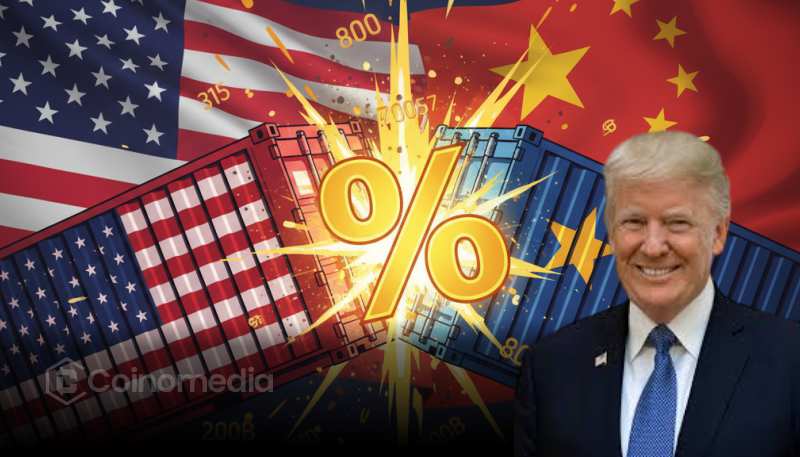Trump Confirms 130% Tariffs on China from Nov 1
Trump announces 130% China tariffs and new export restrictions on key software.

- 130% tariffs on Chinese goods confirmed from Nov 1.
- New U.S. export curbs target key software sectors.
- Trade tensions escalate ahead of 2024 elections.
Trump Escalates Trade War With Massive Tariff Hike
In a dramatic policy shift, Donald Trump has confirmed a 130% tariff on select Chinese goods, set to begin November 1, 2025. This sharp increase marks a major escalation in the U.S.-China trade tensions and is likely to have ripple effects across global markets.
Alongside the tariff hike, Trump also announced new export restrictions on key software technologies, specifically those tied to artificial intelligence, semiconductors, and advanced manufacturing tools. These curbs are designed to limit China’s access to critical U.S. innovations.
The announcement comes as Trump ramps up his campaign for the 2024 U.S. presidential elections, signaling a return to his hardline stance on China.
What the Tariffs and Curbs Mean for Global Trade
The 130% tariffs will likely hit a broad range of Chinese imports, including electronics, industrial components, and consumer goods. For U.S. businesses that rely on Chinese manufacturing, the cost increase could be significant, potentially forcing a shift in supply chains.
Meanwhile, the new export curbs on software are aimed at protecting U.S. technological leadership. This move may restrict American companies from selling or licensing advanced software tools to Chinese firms, particularly in sectors where the U.S. maintains a competitive edge.
Together, these actions represent a double blow to U.S.-China trade—raising barriers for imports while also limiting exports.
Market and Political Reactions
The crypto and tech sectors reacted quickly. Analysts predict increased market volatility, as uncertainty around international trade grows. Chinese markets are expected to feel immediate pressure, while U.S. tech companies may face both opportunities and risks depending on how the curbs are enforced.
Politically, Trump’s aggressive strategy is seen as a way to reassert economic nationalism, appealing to voters concerned about job outsourcing and technological dominance.
Whether these measures result in genuine negotiation leverage—or provoke retaliation from Beijing—remains to be seen.
Read Also:
- Traders Flock to BlockDAG as Price Stays at $0.001 for 10 Days Only, While BNB Flatlines and XRP Holds the $2 Mark
- Best Crypto to Buy: PEPE Consolidates, Etherna Pepe Stalls, While ZKP Targets 100x–10,000x
- ZKP Outshines Solana & Zcash: Experts Tag It the Best Crypto to Buy for 7000x Upside
- 10 New Presale Crypto Projects That Could Deliver 100x–10,000x Gains Before Listings Begin
- From $0.001 to $0.05: Here’s How BlockDAG’s Locked ROI is Crushing Render & Bonk This Week!



